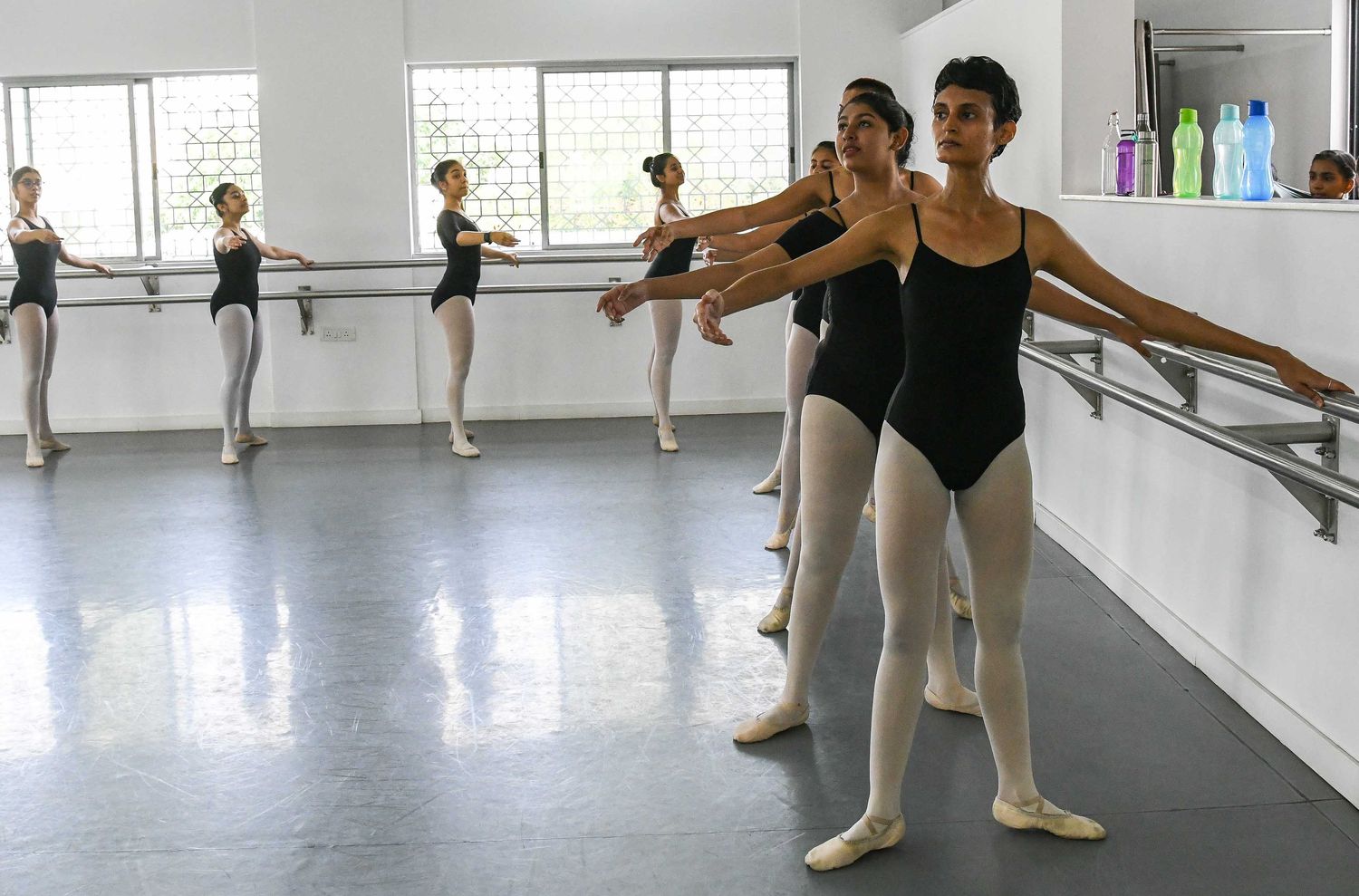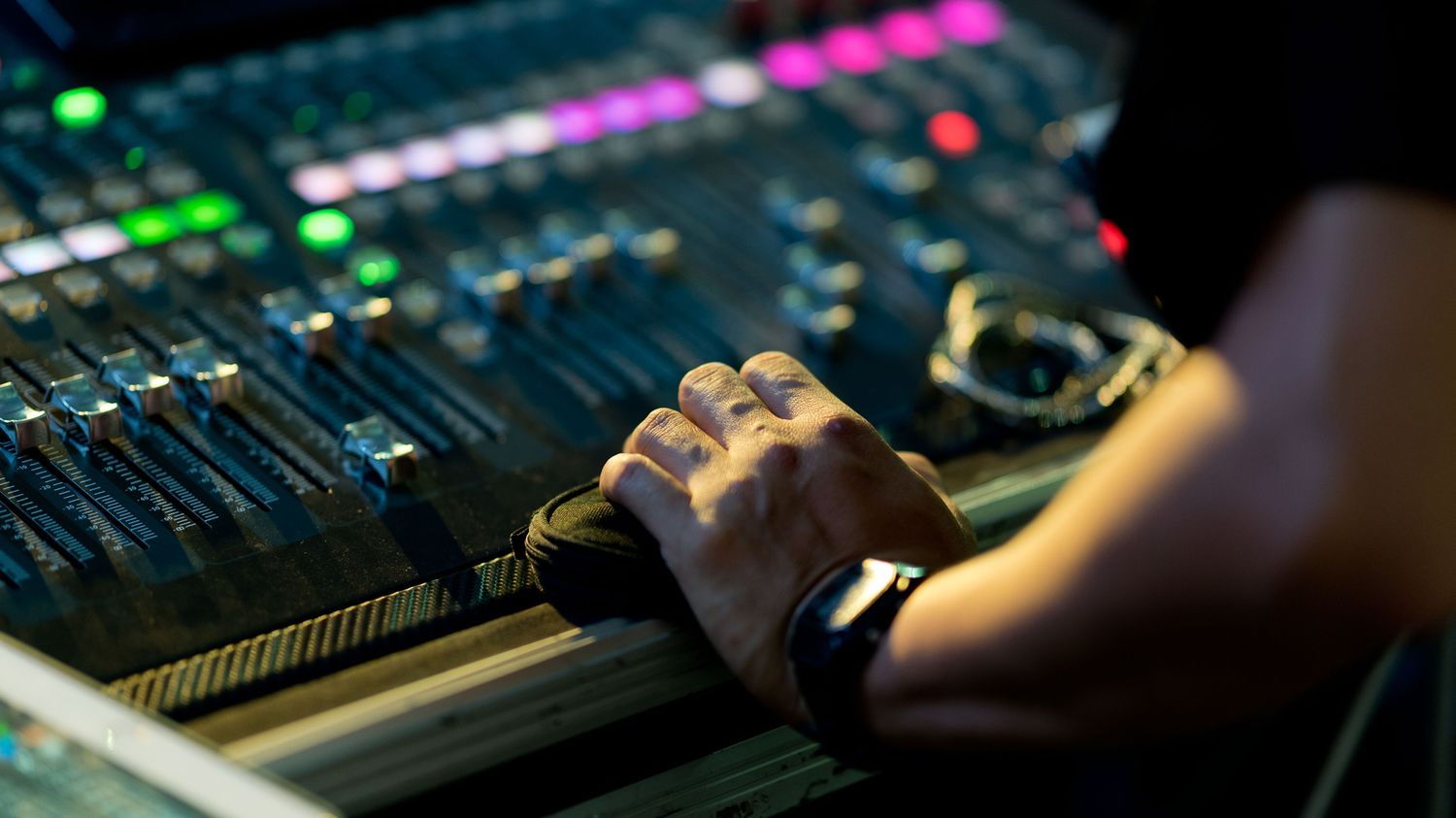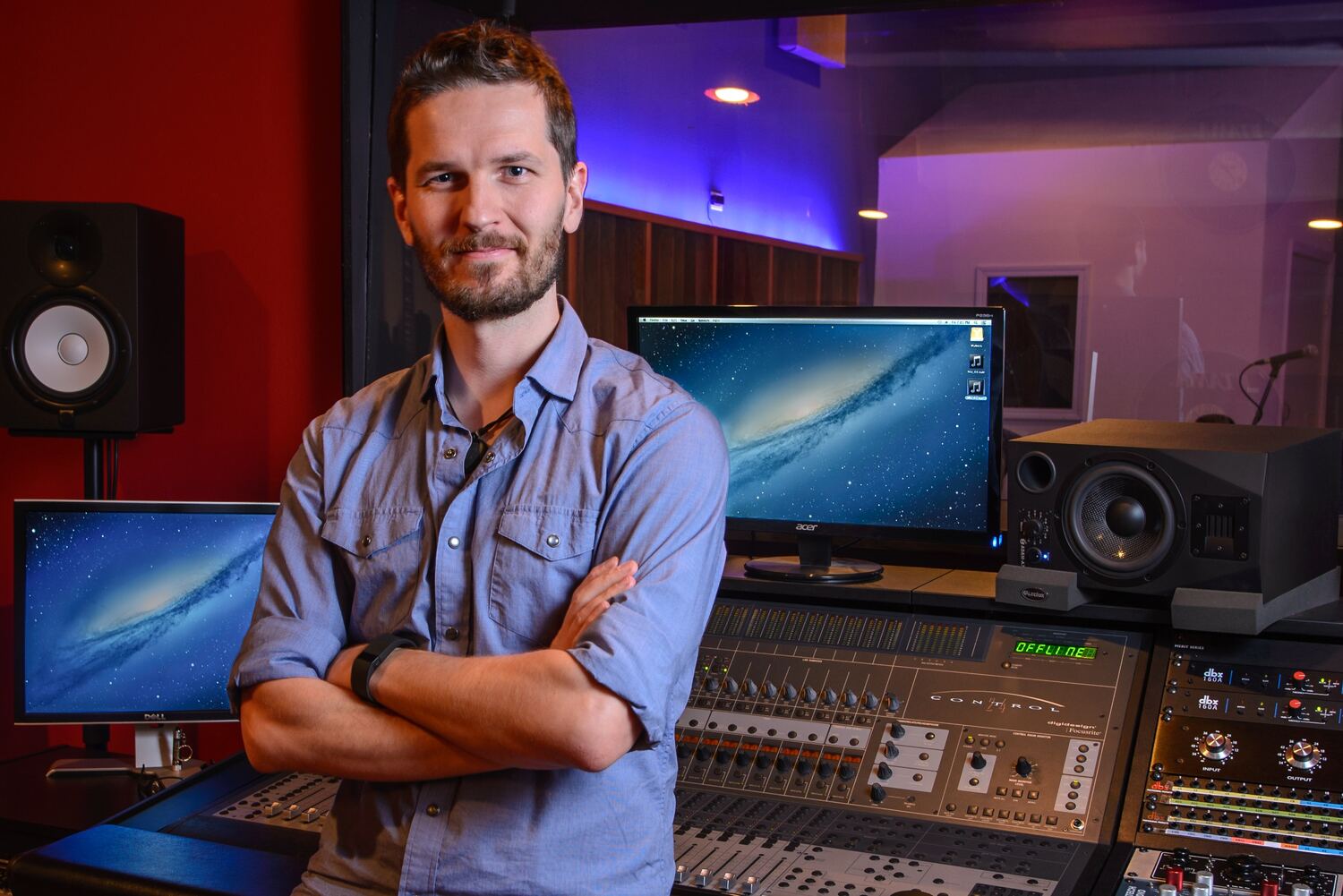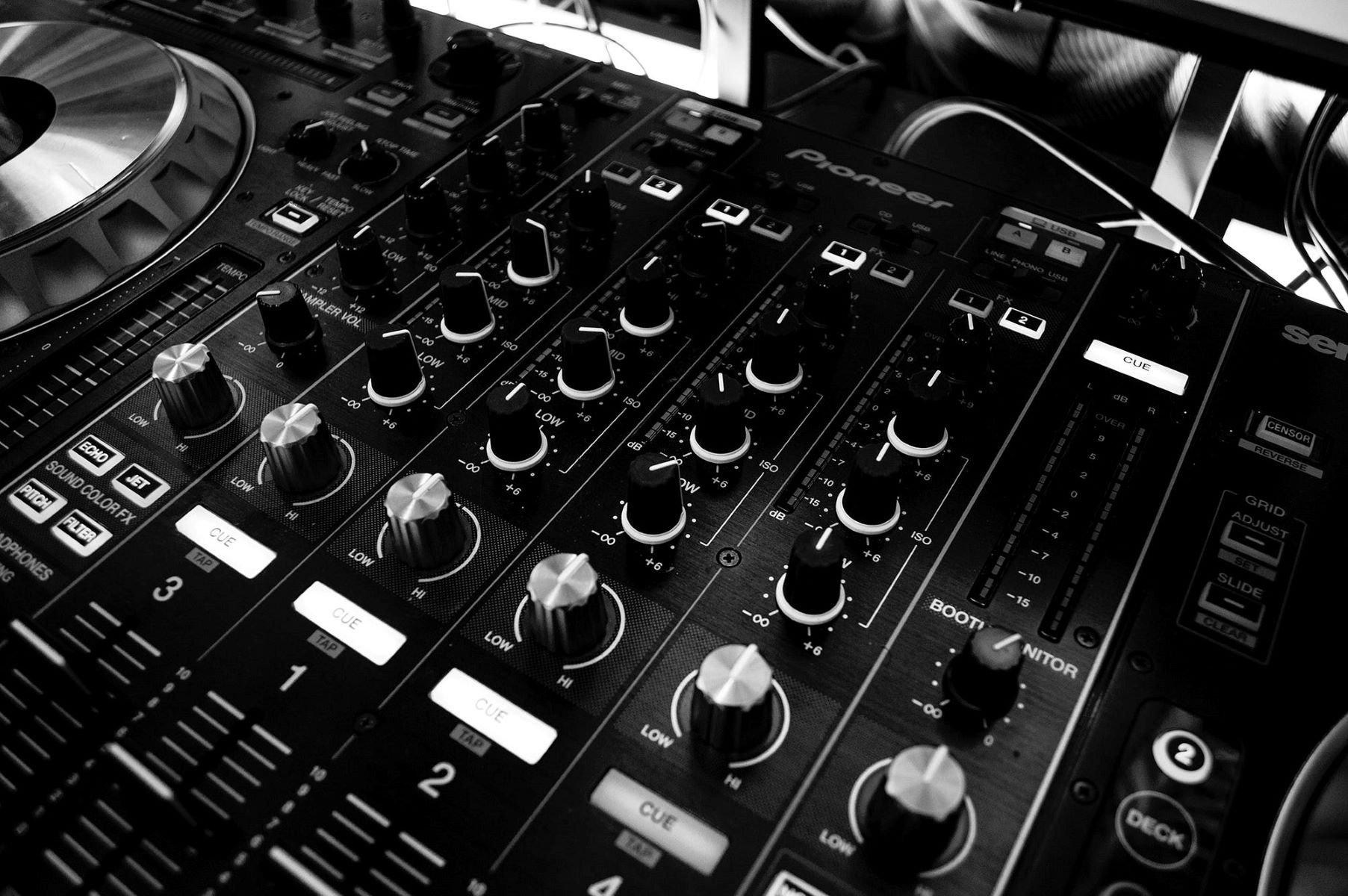Home>Production & Technology>DJ>How To Start DJ Business


DJ
How To Start DJ Business
Published: March 3, 2024
Learn how to start a successful DJ business with our comprehensive guide. Find tips, resources, and strategies to kickstart your DJ career today.
(Many of the links in this article redirect to a specific reviewed product. Your purchase of these products through affiliate links helps to generate commission for AudioLover.com, at no extra cost. Learn more)
Table of Contents
Understanding the DJ Business
The world of DJing is a dynamic and multifaceted industry that encompasses much more than just playing music. Aspiring DJs embarking on this journey need to comprehend the various aspects of the business to thrive in this competitive field. Understanding the DJ business involves delving into the art of entertaining, the technical aspects of sound manipulation, and the entrepreneurial skills required to succeed.
-
Mastering the Art of Entertaining: At the core of the DJ business lies the ability to entertain and engage an audience. DJs are not just music players; they are curators of experiences, setting the mood and energy of an event through their music selection and performance. Understanding the nuances of crowd interaction, reading the room, and adapting to the vibe are essential skills for any DJ.
-
Technical Proficiency: In addition to being entertainers, DJs must also possess a solid grasp of the technical aspects of their craft. This includes understanding sound systems, mixing techniques, beatmatching, and the operation of DJ equipment. A comprehensive understanding of audio equipment and software is crucial for delivering high-quality performances.
-
Entrepreneurial Mindset: Beyond the artistic and technical dimensions, successful DJs also need to cultivate an entrepreneurial mindset. This involves developing business acumen, marketing skills, and a keen understanding of industry trends. Building a sustainable DJ business requires strategic planning, effective branding, and a strong grasp of the market.
-
Versatility and Adaptability: The DJ business is incredibly diverse, encompassing a wide range of events and venues, including weddings, clubs, corporate functions, and festivals. Understanding the diverse needs of these environments and being adaptable to different settings is vital for success in this industry.
-
Legal and Ethical Considerations: Aspiring DJs must also familiarize themselves with legal and ethical considerations in the industry. This includes understanding copyright laws, performance contracts, and licensing requirements. Operating within the bounds of the law and upholding professional ethics are integral to building a reputable DJ business.
Understanding the DJ business involves a blend of artistic flair, technical expertise, entrepreneurial acumen, adaptability, and a commitment to ethical practice. By embracing these multifaceted aspects, aspiring DJs can lay a solid foundation for a successful and fulfilling career in the dynamic world of DJing.
Creating a Business Plan
Crafting a comprehensive business plan is a pivotal step for aspiring DJs looking to establish a successful and sustainable venture in the music industry. This foundational document serves as a roadmap, guiding the entrepreneur through the intricacies of launching and managing a DJ business. A well-crafted business plan not only outlines the DJ's vision and goals but also delineates the strategies and tactics necessary to achieve them.
Vision and Mission Statement
The business plan begins with a clear articulation of the DJ's vision and mission. This involves defining the purpose of the business, identifying the target audience, and elucidating the unique value proposition that sets the DJ apart in the competitive market. By establishing a compelling vision and mission statement, the DJ can align their aspirations with actionable strategies.
Market Analysis
Conducting a thorough market analysis is imperative for understanding the landscape in which the DJ business will operate. This involves researching the local and regional music scenes, identifying competitors, and discerning the prevailing trends and consumer preferences. By gaining insights into the market dynamics, the DJ can tailor their services to meet the demands of their target audience effectively.
Services and Offerings
In this section, the business plan delineates the range of services and offerings that the DJ will provide. Whether it's catering to weddings, corporate events, or nightlife venues, specifying the types of events and the corresponding services offered helps in defining the DJ's niche and positioning in the market.
Marketing and Promotion Strategies
A robust business plan outlines the marketing and promotion strategies that the DJ will employ to reach their target audience. This encompasses digital marketing initiatives, social media engagement, networking with event planners and industry professionals, and leveraging online platforms to showcase the DJ's talent and expertise.
Financial Projections and Budgeting
Financial projections and budgeting form a critical component of the business plan, providing a realistic assessment of the DJ business's revenue streams, expenses, and profitability. This includes estimating startup costs, projecting income from gigs, and outlining the allocation of funds for equipment, marketing, and operational expenses.
Operational Plan
The operational plan details the day-to-day activities involved in running the DJ business. This encompasses logistics, scheduling, client communication, and equipment maintenance, ensuring a systematic approach to delivering exceptional performances while managing the administrative aspects of the business.
Growth Strategies
Anticipating future growth and expansion, the business plan outlines strategies for scaling the DJ business. This may involve diversifying services, expanding into new markets, or forging strategic partnerships to enhance the business's reach and impact.
By meticulously crafting a business plan that encapsulates these essential elements, aspiring DJs can lay a solid foundation for their venture, charting a course for success in the dynamic and competitive realm of the DJ business.
Choosing the Right Equipment
Selecting the appropriate equipment is a pivotal aspect of establishing a successful DJ business. The right gear not only enhances the quality of performances but also reflects the DJ's professionalism and commitment to delivering exceptional experiences. When embarking on the journey of choosing equipment, several key considerations come into play.
Understanding Equipment Requirements
Before making any purchasing decisions, DJs must assess their specific requirements based on the types of events they aim to cater to. For instance, a DJ focusing on weddings and corporate events may prioritize a versatile and elegant setup, while a club DJ might emphasize powerful sound systems and dynamic lighting rigs. Understanding the nuances of different event settings and the corresponding equipment needs is crucial.
DJ Controller and Mixer
The centerpiece of a DJ's setup is the controller or mixer, which serves as the command center for manipulating and blending music. DJs must carefully evaluate the features, connectivity options, and user interface of various controllers to find one that aligns with their technical preferences and performance style. Factors such as channel inputs, EQ controls, and integrated effects play a significant role in shaping the sonic landscape of a DJ's sets.
Speakers and Monitors
Selecting high-quality speakers and monitors is essential for delivering pristine sound quality at events. DJs need to consider factors such as power output, frequency response, portability, and dispersion patterns when choosing speakers that suit their performance environments. Additionally, investing in reliable monitors enables DJs to fine-tune their mixes and ensure optimal sound balance during performances.
Lighting and Visual Effects
For DJs involved in events that demand a captivating visual experience, incorporating lighting and visual effects equipment is paramount. LED fixtures, moving head lights, lasers, and atmospheric effects add a mesmerizing dimension to performances, enhancing the overall ambiance and engaging the audience on a multisensory level.
Backup Equipment and Redundancy
Mitigating the risk of technical malfunctions during performances is crucial for maintaining professionalism and reliability. DJs should consider investing in backup equipment, such as additional cables, a spare controller, or a secondary laptop, to swiftly address any unforeseen technical issues and ensure uninterrupted entertainment for the audience.
Ergonomics and Portability
Considering the practical aspects of equipment, such as portability, setup time, and ergonomic design, is essential for seamless event execution. DJs often navigate diverse venues and setups, making lightweight and easily transportable gear a valuable asset in their professional arsenal.
By meticulously evaluating these factors and aligning equipment choices with their specific needs and performance objectives, DJs can assemble a formidable setup that empowers them to deliver captivating performances and elevate the overall experience for their audiences.
Building a Music Library
Building a robust and diverse music library is a cornerstone of success for any DJ. The music library serves as the palette from which DJs curate their sonic tapestries, tailor their performances to suit diverse audiences, and infuse their sets with creativity and flair. Here's an in-depth exploration of the key considerations and strategies involved in cultivating a compelling music collection.
Understanding Audience Preferences
At the heart of building a music library lies the ability to discern and cater to the musical tastes and preferences of diverse audiences. DJs must conduct thorough research and stay attuned to current trends across various genres and eras. This involves analyzing crowd responses, studying music charts, and engaging with different demographics to gain insights into the songs and genres that resonate with distinct groups of listeners.
Curating a Diverse Repertoire
A well-rounded music library encompasses a wide spectrum of genres, styles, and tempos, allowing DJs to adapt to the unique atmospheres of different events. From classic hits to contemporary chart-toppers, from dance anthems to mellow ballads, diversity in the music repertoire empowers DJs to craft versatile and engaging performances that cater to the preferences of varied audiences.
Quality and Organization
Maintaining a meticulously organized music library is essential for seamless and efficient performance execution. DJs must prioritize high-quality audio files, ensuring that their music collection comprises pristine recordings that deliver an immersive auditory experience. Furthermore, employing systematic categorization, metadata tagging, and playlist structuring streamlines the process of accessing and integrating tracks during live performances.
Discovering Hidden Gems and Remixes
In addition to mainstream hits, DJs often seek out lesser-known tracks, remixes, and mashups that add an element of novelty and surprise to their sets. Exploring underground music scenes, engaging with fellow DJs and producers, and leveraging digital platforms for music discovery enables DJs to unearth hidden gems that can elevate their performances and set them apart in the competitive DJ landscape.
Adapting to Event Dynamics
Every event presents a unique sonic landscape, and DJs must tailor their music library to align with the specific ambiance, theme, and demographics of each occasion. Whether it's a sophisticated corporate gala, a lively wedding celebration, or a pulsating nightclub set, the ability to curate a customized selection of tracks that resonates with the event's dynamics is paramount for delivering memorable and impactful performances.
Embracing Continuous Growth
Building a music library is an ongoing journey of exploration, curation, and refinement. DJs must remain open to new musical influences, stay abreast of emerging artists and trends, and consistently expand and refresh their music collection to stay relevant and captivating in the ever-evolving landscape of music and entertainment.
By conscientiously attending to these facets of music library building, DJs can fortify their artistic arsenal, craft compelling performances, and forge enduring connections with their audiences through the universal language of music.
Marketing and Promoting Your DJ Business
Marketing and promoting a DJ business is a multifaceted endeavor that involves leveraging various channels and strategies to reach potential clients, establish a strong brand presence, and cultivate a loyal audience. In the competitive landscape of the music industry, effective marketing not only amplifies the visibility of the DJ but also communicates their unique value proposition to prospective clients and event organizers.
Crafting a Compelling Brand Identity
At the core of effective marketing is the development of a compelling brand identity that encapsulates the essence of the DJ's style, personality, and the experience they offer. This involves creating a distinct brand name, logo, and visual identity that resonates with the target audience, conveying professionalism and creativity.
Digital Presence and Online Promotion
Establishing a robust online presence is paramount in today's digital age. DJs should harness the power of social media platforms, such as Instagram, Facebook, and Twitter, to showcase their performances, engage with followers, and amplify their reach. Additionally, maintaining an updated website that features a portfolio of past events, client testimonials, and a comprehensive overview of services enhances credibility and facilitates client inquiries.
Networking and Collaboration
Building strong relationships within the music and events industry is instrumental in expanding the DJ's reach and securing new opportunities. Networking with event planners, venue managers, and fellow artists can lead to referrals and collaborations, opening doors to a diverse array of events and clientele.
Showcasing Expertise through Content
Creating and sharing valuable content, such as mixtapes, music production tutorials, or insightful blog posts, positions the DJ as an authority in their field. This not only fosters engagement with the audience but also cultivates a sense of trust and admiration, establishing the DJ as a go-to professional in the industry.
Leveraging Testimonials and Reviews
Client testimonials and positive reviews serve as powerful endorsements that bolster the DJ's reputation. Requesting feedback from satisfied clients and showcasing their testimonials on promotional materials and online platforms instills confidence in potential clients, affirming the DJ's track record of delivering exceptional performances.
Targeted Advertising and Promotion
Strategic advertising initiatives, such as targeted social media ads, collaborations with event listing platforms, and participation in industry-specific publications and directories, can amplify the DJ's visibility and attract the attention of potential clients seeking entertainment services.
Engaging with Local Communities
Participating in local events, supporting community initiatives, and contributing to charitable causes not only fosters goodwill but also enhances the DJ's visibility within the local community. This grassroots approach can lead to valuable connections and opportunities for event bookings.
By orchestrating a cohesive marketing and promotion strategy that encompasses these elements, DJs can elevate their brand presence, expand their clientele, and solidify their position as sought-after entertainers in the dynamic realm of the DJ business.
Setting Your Prices
Establishing competitive and equitable pricing is a critical facet of running a successful DJ business. The process of setting prices involves a delicate balance between reflecting the value of the services offered and remaining competitive within the market. Here's a comprehensive exploration of the key considerations and strategies involved in determining optimal pricing for DJ services.
Understanding Market Dynamics
Before determining pricing, DJs must conduct a thorough analysis of the prevailing market rates for similar services in their geographic region and target event types. This involves researching the pricing structures of local competitors, understanding the pricing differentials for various event categories, and discerning the factors that influence pricing variations, such as event duration, venue size, and additional services.
Value-Based Pricing
A value-based pricing approach entails aligning the pricing structure with the unique value proposition and expertise offered by the DJ. This involves considering factors such as the DJ's experience, reputation, technical proficiency, music selection, and the overall experience they deliver. By articulating the distinct value they bring to events, DJs can justify premium pricing that reflects their expertise and the exceptional quality of their performances.
Service Differentiation
DJs can tailor their pricing based on the specific services and offerings they provide. For instance, premium services such as custom music production, personalized event consultations, or additional lighting and visual effects may warrant higher pricing tiers. By delineating service packages with varying levels of inclusivity and customization, DJs can cater to diverse client preferences while offering transparent and flexible pricing options.
Cost Analysis and Profit Margins
Conducting a comprehensive cost analysis is essential for determining sustainable pricing that covers operational expenses, equipment maintenance, marketing costs, and a reasonable profit margin. DJs must factor in overhead costs, such as equipment upgrades, transportation, insurance, and administrative expenses, to ensure that their pricing structure supports the long-term viability of their business.
Flexibility and Customization
Offering flexibility in pricing allows DJs to accommodate the unique requirements and budgetary constraints of clients. This may involve providing customizable packages, a la carte service options, or tiered pricing structures that cater to different event scales and client preferences. By demonstrating flexibility, DJs can appeal to a broader range of clientele while optimizing revenue streams.
Competitive Positioning
While maintaining a focus on the value they offer, DJs should position their pricing competitively within the market. This involves striking a balance between justifying premium pricing based on expertise and quality, while also remaining accessible and appealing to clients seeking cost-effective entertainment solutions. Understanding the pricing strategies of competitors and identifying opportunities to differentiate based on value can inform effective competitive positioning.
By navigating these pricing considerations with a strategic and informed approach, DJs can establish pricing structures that reflect the value of their services, resonate with clients, and sustainably support the growth and success of their DJ business.
Networking and Building Client Relationships
Networking and building client relationships are fundamental pillars of success for DJs aiming to establish a thriving and sustainable business. In the dynamic landscape of the music industry, forging meaningful connections with industry professionals, event organizers, and potential clients is paramount for securing bookings, expanding one's reach, and cultivating a loyal client base.
Engaging with Industry Professionals
Developing a robust network within the music and events industry is instrumental in accessing a diverse array of opportunities. Networking with event planners, venue managers, and fellow artists not only fosters collaborative prospects but also opens doors to referrals and recommendations. Attending industry events, music conferences, and professional gatherings provides valuable platforms for connecting with industry insiders and establishing rapport with key decision-makers.
Leveraging Online Platforms
In today's digital age, online networking plays a pivotal role in expanding one's reach and visibility. Leveraging social media platforms, professional networking sites, and online forums enables DJs to engage with a global audience, showcase their expertise, and connect with potential clients across geographical boundaries. Consistently sharing engaging content, participating in relevant discussions, and leveraging digital platforms for networking amplifies the DJ's online presence and fosters connections with a diverse array of industry stakeholders.
Nurturing Client Relationships
Building enduring client relationships is predicated on delivering exceptional experiences and demonstrating a genuine commitment to client satisfaction. By prioritizing clear and responsive communication, understanding the unique requirements of each client, and tailoring performances to exceed expectations, DJs can foster trust and loyalty. Engaging in post-event follow-ups, seeking feedback, and expressing gratitude for client support cultivates a client-centric approach that solidifies long-term relationships.
Collaborative Partnerships
Forming strategic partnerships with complementary businesses, such as event planners, venues, and entertainment agencies, can broaden the DJ's reach and facilitate mutually beneficial collaborations. By aligning with reputable industry partners, DJs can access new client pools, gain exposure to diverse events, and leverage collective expertise to deliver comprehensive entertainment solutions. Collaborative partnerships not only expand the DJ's professional network but also enhance their credibility and market presence.
Community Engagement
Active involvement in local communities, charitable initiatives, and cultural events fosters goodwill and strengthens the DJ's ties within the community. By supporting local causes, participating in community events, and contributing to philanthropic endeavors, DJs can forge meaningful connections, build a positive reputation, and garner support from local clientele. This grassroots approach to networking cultivates a sense of belonging and establishes the DJ as an integral part of the community fabric.
By proactively engaging in networking endeavors, nurturing client relationships, and fostering collaborative partnerships, DJs can fortify their industry presence, secure valuable opportunities, and cultivate a loyal clientele that propels their business to new heights.
Managing Your Finances
Managing finances is a critical aspect of running a successful DJ business, encompassing prudent budgeting, strategic financial planning, and meticulous record-keeping. By adopting a disciplined approach to financial management, DJs can ensure the sustainability and growth of their ventures while navigating the complexities of income fluctuation inherent in the entertainment industry.
Budgeting and Expense Tracking
Establishing a comprehensive budget serves as the cornerstone of financial management, enabling DJs to allocate funds effectively across various operational areas. This involves categorizing expenses such as equipment maintenance, marketing and promotion, transportation, insurance, and administrative costs. By tracking expenditures meticulously, DJs gain insights into their cash flow, identify areas for cost optimization, and maintain fiscal discipline.
Revenue Diversification and Forecasting
Given the variable nature of gig-based income, DJs must diversify revenue streams to mitigate the impact of seasonal fluctuations and market dynamics. This may involve offering additional services such as music production, equipment rentals, or educational workshops. Furthermore, forecasting future income based on historical performance data and market trends empowers DJs to make informed financial decisions and plan for long-term stability.
Tax Planning and Compliance
Navigating tax obligations is paramount for ensuring legal compliance and optimizing financial efficiency. DJs should familiarize themselves with tax regulations specific to self-employment and entertainment income, including deductions for business expenses and the allocation of income for tax payments. Engaging with qualified tax professionals can provide valuable guidance in maximizing tax benefits while adhering to regulatory requirements.
Investment and Retirement Planning
Prudent financial management extends to planning for the future, including investment strategies and retirement planning. DJs should consider establishing retirement accounts, exploring investment opportunities, and seeking professional advice to safeguard their financial well-being beyond their active DJing years. By cultivating a long-term financial vision, DJs can secure their financial futures and mitigate the impact of income volatility.
Emergency Fund and Contingency Planning
Building an emergency fund to weather unforeseen financial challenges is a prudent practice for DJs. Fluctuations in gig bookings, equipment repairs, or unexpected personal expenses can impact cash flow. Maintaining a financial cushion safeguards against unforeseen disruptions and provides peace of mind, ensuring the continuity of the DJ business in the face of unexpected financial exigencies.
Professional Financial Guidance
Seeking professional financial guidance from certified accountants, financial advisors, or business consultants can provide invaluable insights into optimizing financial strategies, managing cash flow, and maximizing profitability. Collaborating with professionals who understand the nuances of the entertainment industry can offer tailored financial solutions and empower DJs to make informed decisions aligned with their business objectives.
By adhering to these principles of financial management, DJs can fortify the financial resilience of their businesses, navigate the ebbs and flows of the industry, and cultivate a sustainable foundation for long-term success.











